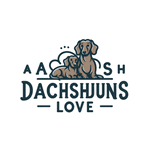The Dachshund lab mix, also known as the doxidor, is a hybrid breed that is gaining popularity among dog lovers. This unique blend of two distinct breeds, the dachshund and the Labrador Retriever, results in a dog with a fascinating mix of traits and personalities. From their physical appearance to their behavior and temperament, these dogs have captivated the hearts of many. In this article, we will delve into the world of the dachshund lab mix, exploring their heritage, appearance, temperament, training needs, potential health issues, and how to find the perfect one for your family.
Contents
Understanding the Dachshund Lab Mix: A Look at Their Heritage

To truly understand the dachshund lab mix, it is essential to be familiar with the parent breeds. The dachshund, also known as the wiener dog or sausage dog, originated in Germany in the 15th century. They were initially bred for hunting purposes, specifically to track and hunt badgers. Their long, low body and powerful front legs made them well-suited for this task. Over time, they became popular as family pets due to their loyalty and affectionate nature.
On the other hand, the Labrador Retriever has its origins in Newfoundland, Canada. They were originally used by fishermen to retrieve fish and nets from the water. With their excellent swimming abilities and strong retrieving skills, they quickly gained popularity as hunting and sporting dogs. Today, they are one of the most beloved breeds worldwide, known for their friendly and gentle nature.
When these two breeds are crossed, the result is a captivating combination of characteristics. The dachshund lab mix inherits the dachshund’s independent and determined spirit, combined with the Labrador’s sociable and playful nature.
Appearance and Temperament: What to Expect from a Dachshund Lab Mix

The appearance of a dachshund lab mix can vary depending on which parent breed they take after more. Some may have the long, low body of a dachshund with the coloring of a Labrador, while others may have a sleek and athletic build resembling the lab. They typically have a short and dense coat that requires minimal grooming.
When it comes to temperament, these dogs are known for their intelligence, affection, and playful demeanor. They are highly social creatures and thrive in the company of their human family. However, due to their dachshund heritage, they can also have an independent streak and may exhibit some stubbornness at times. It is crucial to socialize them early on to prevent any potential behavioral issues.
As with any mixed breed, it can be challenging to predict the exact traits a dachshund lab mix will inherit. However, one thing is for sure; these dogs are full of love and make excellent companions for families of all sizes.
Training and Exercise: Meeting the Needs of Your Dachshund Lab Mix
Both the dachshund and Labrador Retriever are intelligent breeds, making the dachshund lab mix a quick learner. However, due to their independent nature, they may require patience and consistency during training. Positive reinforcement techniques such as treats and praise work best for these dogs.
It is essential to provide regular mental and physical stimulation for your dachshund lab mix. As hunting dogs, they have high energy levels and require daily exercise. A minimum of 30 minutes of moderate to vigorous exercise is recommended, such as walks, runs, or playtime in a fenced yard. Without proper exercise, these dogs may become bored and develop destructive behaviors.
Health Considerations: Understanding Potential Health Issues in Dachshund Lab Mixes

The dachshund lab mix is a relatively healthy breed, with an average lifespan of 12-14 years. However, like all dogs, they may be predisposed to certain health conditions due to their parent breeds’ genetics.
One common health issue in dachshund lab mixes is back problems. Both dachshunds and Labradors are susceptible to intervertebral disc disease (IVDD), a condition in which the spinal discs rupture or bulge, causing pain and mobility issues. It is recommended to keep these dogs at a healthy weight and avoid activities that put strain on their back, such as jumping on and off high surfaces.
Hip and elbow dysplasia are also potential health concerns in dachshund lab mixes. These conditions occur when the joints do not develop correctly, leading to pain and mobility issues. Regular check-ups with a veterinarian and proper nutrition can help prevent or manage these conditions.
Another health issue to watch out for is obesity. Due to their love for food and tendency to beg, dachshund lab mixes may become overweight if not monitored closely. Obesity can lead to various health problems, such as diabetes and joint issues. It is crucial to maintain a healthy diet and exercise routine for your dog to keep them fit and healthy.
Finding the Perfect Dachshund Lab Mix: Tips for Adoption and Breeding

If you have decided that a dachshund lab mix is the right breed for you, there are a few things to consider before bringing one home. Adoption is always a great option, and there are many rescue organizations and shelters that may have dachshund lab mixes available. This is also a more cost-effective option compared to buying from a breeder.
If you do choose to buy from a breeder, do your research and make sure to only work with reputable and ethical breeders. Ask to see health clearances for both parent breeds and visit the breeding facility to ensure the dogs are well-cared for.
Before bringing your dachshund lab mix home, make sure you have all the essential supplies and are prepared to meet their needs. Provide them with a safe and comfortable space, plenty of toys, and a healthy diet.
Conclusion

In conclusion, the dachshund lab mix is a unique and lovable breed that combines the best traits of its parent breeds. From their physical appearance to their personality and health considerations, these dogs offer a diverse range of characteristics that make them stand out. Whether you adopt or buy from a reputable breeder, providing proper care, exercise, and training for your dachshund lab mix will result in a happy and devoted companion for many years to come.
